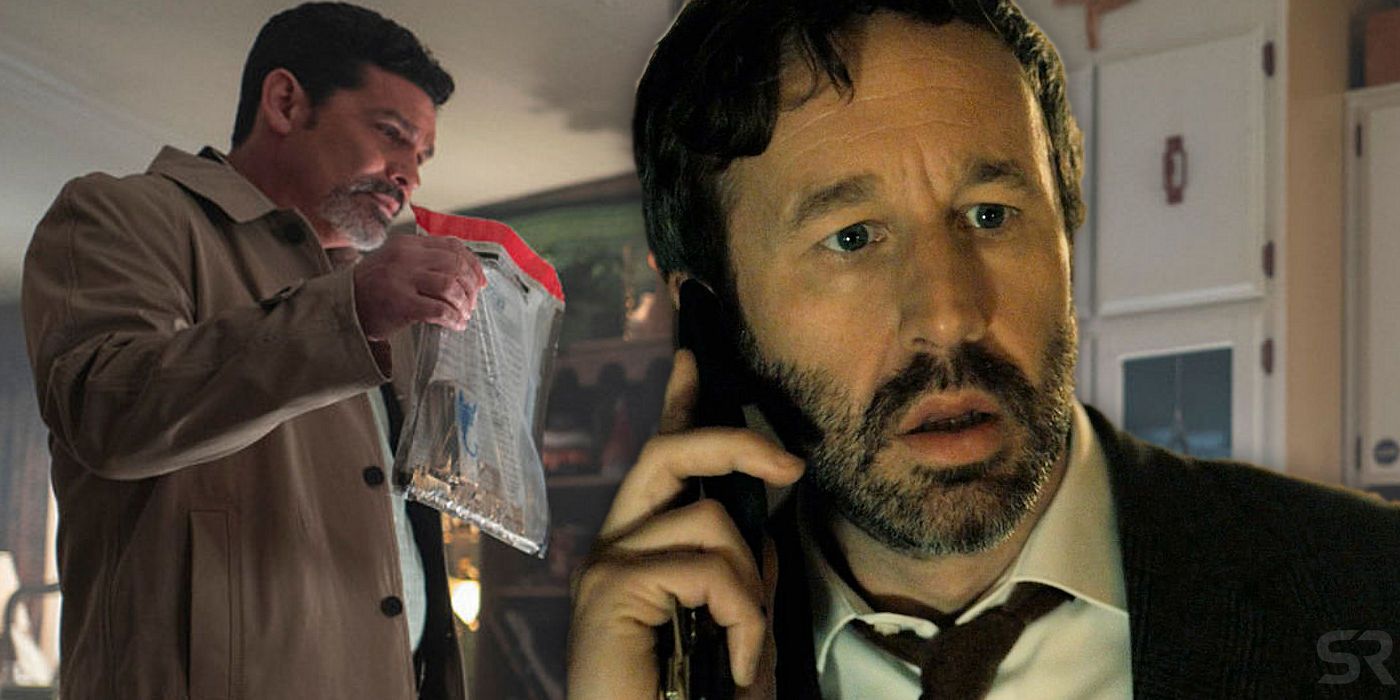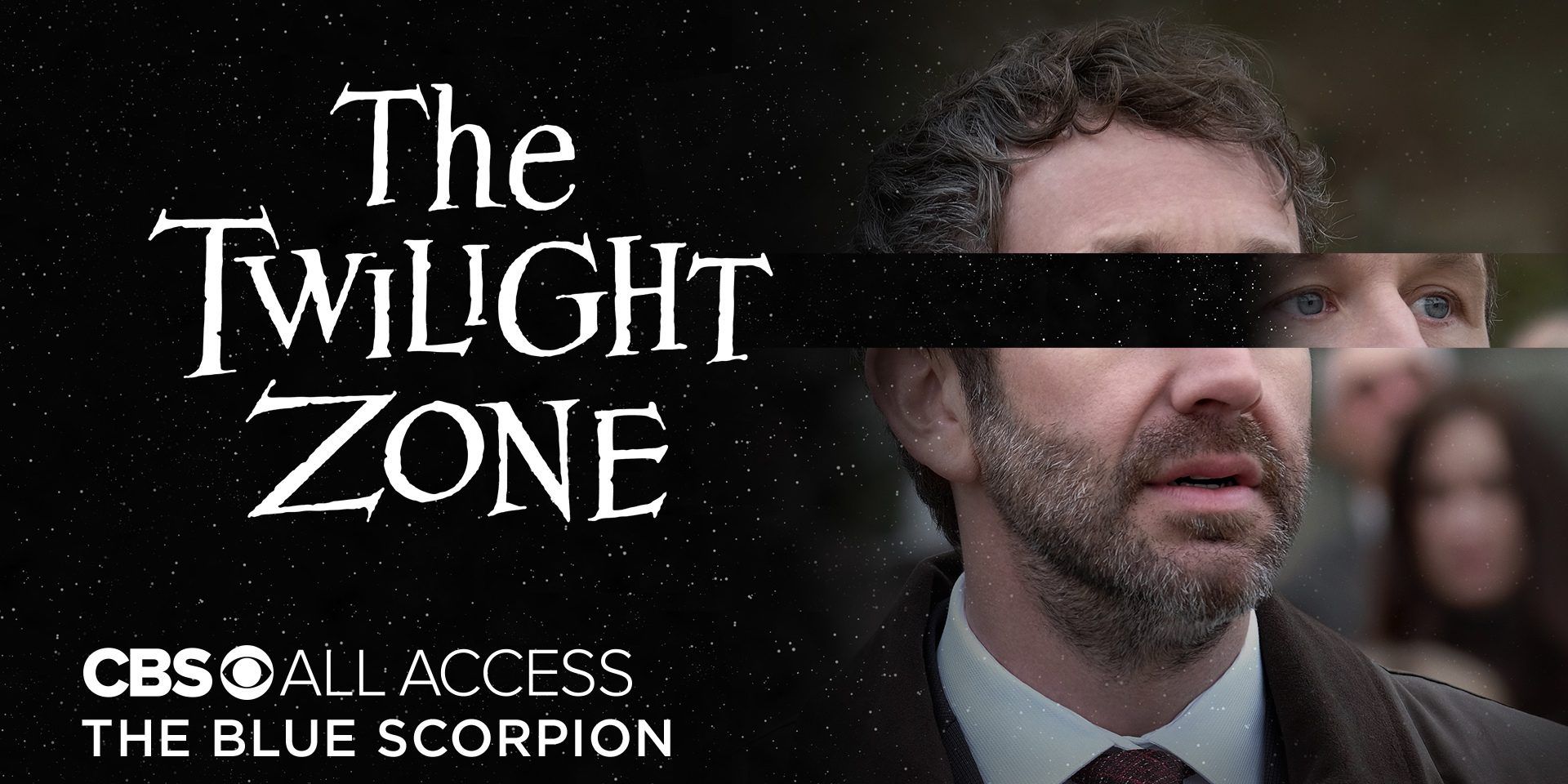The Twilight Zone episode 9, “The Blue Scorpion,” examines the relationship between people and material objects, which is representative in its ending. A man grieves after his father’s suicide and forms a bond with a gun. "The Blue Scorpion" addresses concepts of fate, faith, and free will, along with the idea that history will repeat itself. In this particular case, one man avoids a personal tragedy but sets up a future tragic event.
In “The Blue Scorpion," Chris O’Dowd portrays an anthropology professor named Jeffrey Minghus Storck. He visits the home of his hippie father, which is covered wall-to-wall with rock-and-roll music posters. Jeff discovers his father’s corpse in the back bedroom, along with a bullet that bears the man’s name: OTIS. After Jordan Peele’s opening narration frames Jeff as a man who “lacks true knowledge of himself,” he discovers a heart-shaped box in his father’s closet; a thematic nod to Nirvana’s 1993 single “Heart-Shaped Box.” Jeff discovers a bullet with his name on it; a moment that marks the episode’s inciting incident. Jeff must determine why the bullet bears his name, and how it’s possible that he keeps meeting people named Jeff from that point forward. Crucially, Jeff’s impending divorce suggests that he’ll inevitably suffer some type of breakdown; however, The Twilight Zone’s “The Blue Scorpion” ultimately points towards a larger picture.
Jeff learns that The Blue Scorpion has a unique backstory. A gun dealer reveals that a Cuban man named Eulogio Cienfuegos made the firearm, and states that the iconic revolutionary figure Che Guevara had been looking for it. He also reveals a myth that implies the gun is “afraid of the dark.” As Jeff struggles with his divorce settlement, he gets high at his father’s apartment. Jeff wears the man’s clothes and listen to his records. Through these objects, Jeff seemingly grows closer to his father. By the end of the night, he sees the aforementioned Cienfuegos in the corner of his father’s room and hilariously states “Man, I am so f**king high.” The moment is telling, as Jeff’s reality is now connected to nostalgic items. He may lose his father’s bass guitar in the divorce settlement, which causes him to freak out. Jeff has core responsibilities to consider, but material objects have become more important.
To further understand why a bullet bears his name, Jeff takes The Blue Scorpion to a firing range. Soon, he feels right at home, evidenced by a stylized sequence in which Jeff becomes more comfortable with the gun. At this point, “The Blue Scorpion” becomes thematically and stylistically linked to Martin Scorsese’s 1976 classic Taxi Driver, a film about a lonely man who finds meaning (and power) though guns. Just as Robert De Niro’s Travis Bickle prepares for a moment that will seemingly define his life, Jeff similarly prepares for destiny. He doesn’t necessarily know how The Blue Scorpion will be involved, but he does know that he’ll never let go of the item. The gun loves Jeff more anything - according to the Cienfuegos ghost - and Jeff has grown to love The Blue Scorpion.
Like Travis Bickle in Taxi Driver, Jeff’s paranoia affects his relationship with women. He becomes threatening during a divorce settlement meeting, and becomes obsessed with his wife’s new relationship (with a man named Jeff). Also like Taxi Driver, “The Blue Scorpion” includes a scene in which a man looms outside a woman’s home, and with a gun. In Scorsese’s film, it’s none other than Scorsese himself; a vengeful passenger in Bickle's taxi. In The Twilight Zone's "The Blue Scorpion," Jeff worries about another Jeff. During a climactic moment, a man breaks Jeff’s car window and dies via The Blue Scorpion, which magically shoots without being fired by Jeff. When the police arrive, they identify the deceased as a local home invader, and Jeff is identified in the news as a hero. Once again, there’s a clear narrative connection between “The Blue Scorpion” and Taxi Driver, as Scorsese’s film ends with public salvation for Travis Bickle.
By the end of The Twilight Zone’s “The Blue Scorpion,” Jeff finds peace with his ex-wife and throws the gun into a lake. He has moved on. But The Blue Scorpion legend survives, as two adolescent boys find the firearm on the lake shore, and a bullet bears one of the boys’ names. Peele’s final narration foreshadows the inevitable tragedy that’s to come, all the while underlining the concept of materialism.


